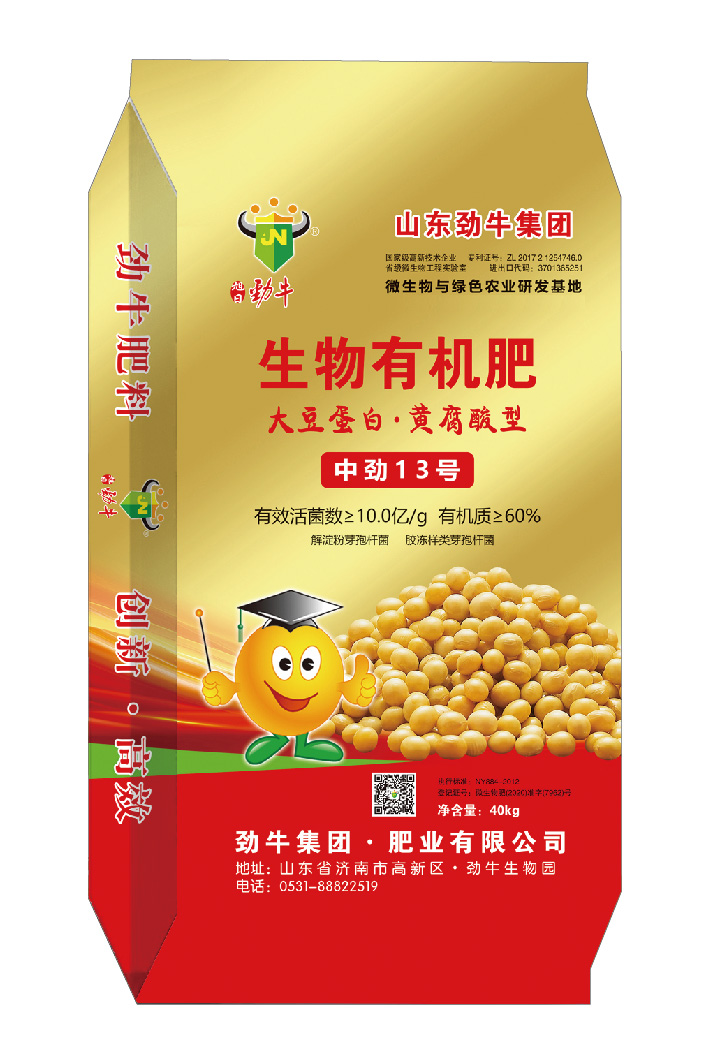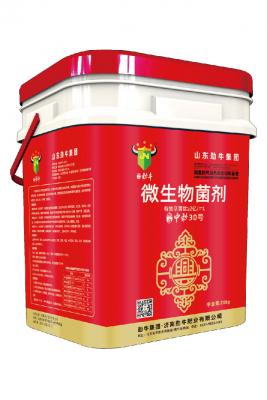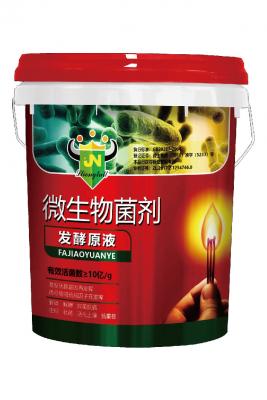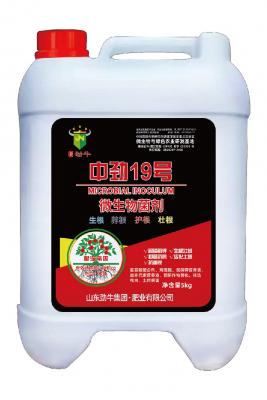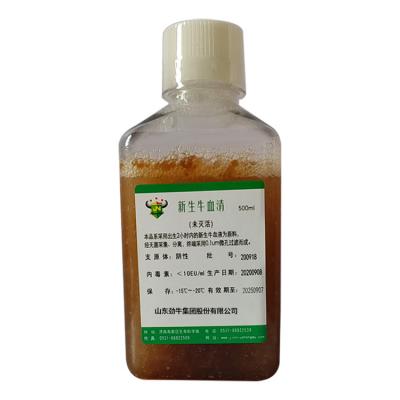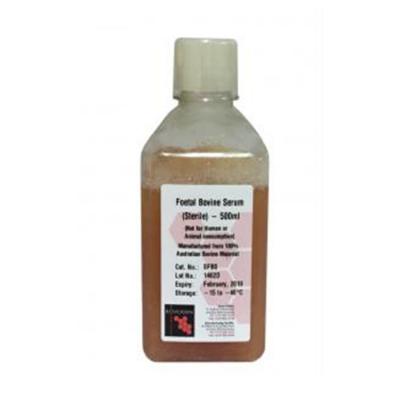Zhongjin No. 13 soy protein biofertilizer
Zhongjin No. 13 microbial inoculant was developed by Shandong Jinniu Group. The inoculant contains relatively active microbial flora and various active enzymes. It decomposes active ingredients in the soil through the life activities of microorganisms, and plays a role in decomposing phosphorus, potassium and It can fix nitrogen and reduce the use of chemical fertilizers. At the same time, it can produce plant hormones, acidic substances and vitamins needed by various crops, which can stimulate and regulate plant growth to varying degrees. It can also produce siderophores, antibiotics, system defense enzymes and other substances. , can inhibit bacterial or fungal diseases or induce systemic resistance to indirectly promote plant growth. It can be used not only for the cultivation of various food crops and vegetables, but also for the cultivation of economic crops such as fruit trees.
Zhongjin No. 13 microbial inoculant was developed by Shandong Jinniu Group. The inoculant contains relatively active microbial flora and various active enzymes. It decomposes active ingredients in the soil through the life activities of microorganisms, and plays a role in decomposing phosphorus, potassium and It can fix nitrogen and reduce the use of chemical fertilizers. At the same time, it can produce plant hormones, acidic substances and vitamins needed by various crops, which can stimulate and regulate plant growth to varying degrees. It can also produce siderophores, antibiotics, system defense enzymes and other substances. , can inhibit bacterial or fungal diseases or induce systemic resistance to indirectly promote plant growth. It can be used not only for the cultivation of various food crops and vegetables, but also for the cultivation of economic crops such as fruit trees.
1. Improve soil nutrients
The effective bacteria in bio-organic fertilizer fermented by microbial bacteria can promote the dissolution and release of insoluble nutrients in the soil and improve the soil's nutrient supply capacity.
The extracellular polysaccharide substances secreted by effective bacteria are the adhesive of soil aggregate structure. They can enhance soil aggregate structure, loosen soil, improve soil permeability and water and fertilizer retention capacity, increase soil organic matter, prevent hardening, and adjust soil pH. value, activate potential nutrients in the soil, and improve the supply of nutrients in the soil. Effectively solve the problem of continuous work and continuous work.
2. Solve the problem of heavy metal pollution in soil.
Various bacteria in bio-organic fertilizers can effectively dissolve, redox and degrade heavy metals in the soil. The dissolution of heavy metals by microorganisms is mainly carried out directly or indirectly through various metabolic activities. The metabolism of soil microorganisms can produce a variety of low molecular weight organic acids, amino acids, etc., and dissolve heavy metals and minerals containing heavy metals. Heavy metals can form stable complexes with soil organic matter, which has a profound impact on the chemical behavior of heavy metals in soil. Effectively solve the problem of heavy metal pollution in soil.
3. Improve fertilizer utilization rate
Most of the effective bacteria in bio-organic fertilizer fermented by microbial bacteria can decompose organic matter in the soil. The organic matter produces humic acid during the decomposition process. The humic acid and the nitrogen in the soil form ammonium humate, which can reduce the loss of nitrogen fertilizer. Among them, effective potassium-solubilizing and phosphorus-solubilizing bacteria can decompose and convert chemical potash and chemical phosphate fertilizers solidified in the soil into available potassium and available phosphorus, improving their utilization rate, reducing production input, and reducing resource waste. After using microbial organic fertilizer, the use of chemical fertilizers can be reduced by 70% and the use of pesticides by 80%.
4. Enhance the stress resistance of crops
The effective bacteria in bio-organic fertilizer fermented by microbial bacteria have the function of secreting antibiotic substances and various active enzymes, which can inhibit or kill pathogenic bacteria, reduce the occurrence of diseases and enhance the stress resistance of crops, and can enhance the drought resistance of crops. , cold resistance, lodging resistance, disease prevention and salt-alkali resistance. It can also effectively kill pathogenic bacteria in the soil and reduce the occurrence of diseases.
5. Remove crop residues and improve crop quality
Practice has proven that agricultural products harvested using microbial bacteria technology greatly reduce the content of pesticide residues, ensuring pure green and safe consumption. In addition, the content of beneficial ingredients such as protein, sugar, amino acids, and vitamins in crops has been significantly increased. The seeds and fruits are plump and smooth. The vegetables and fruits are bright in color and of high value. It can also reduce the accumulation of cigarette nitrates and improve the safety of agricultural products.
6. Increase production
The bio-organic fertilizer fermented by microbial bacteria not only provides nutrients for crops, but its effective bacteria can also secrete active substances such as gibberellins, cytokinins, and auxins to stimulate, regulate, and promote the growth and development of crops, which is beneficial to increasing crop yields. . For different types of crops, the yield increase ranges from 20% to 40%. Among them, the output of grain crops increased by 20-25%, the output of fruit trees increased by about 30%, and the output of vegetables increased by 25-40%.
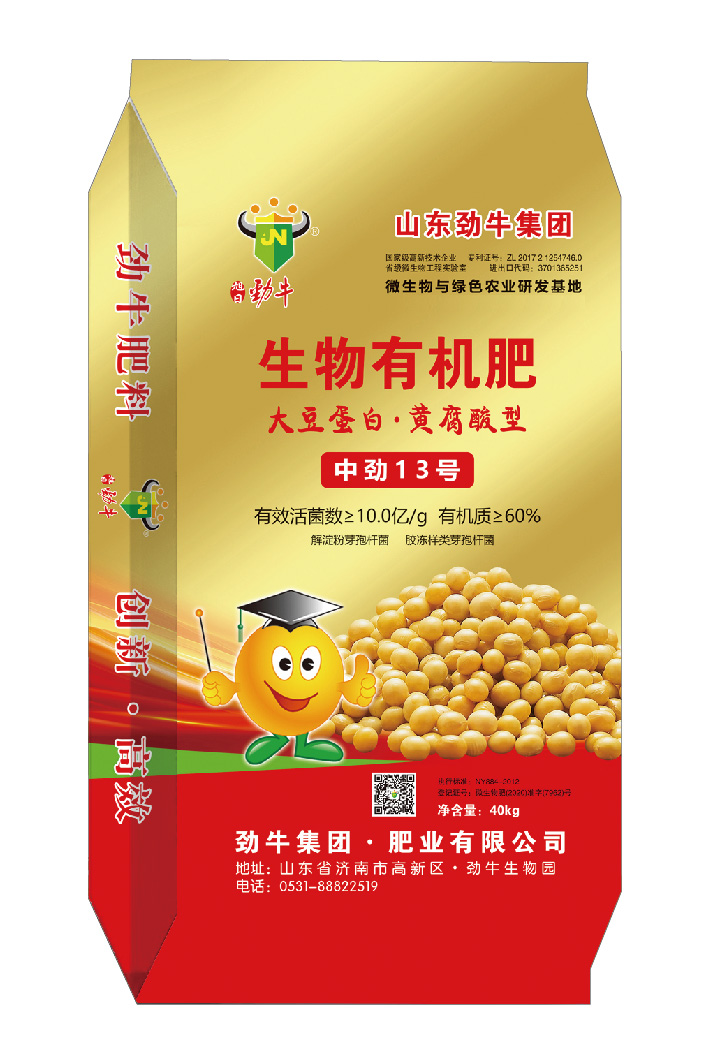
Related Products
Related News
Submitted successfully
We will contact you as soon as possible

